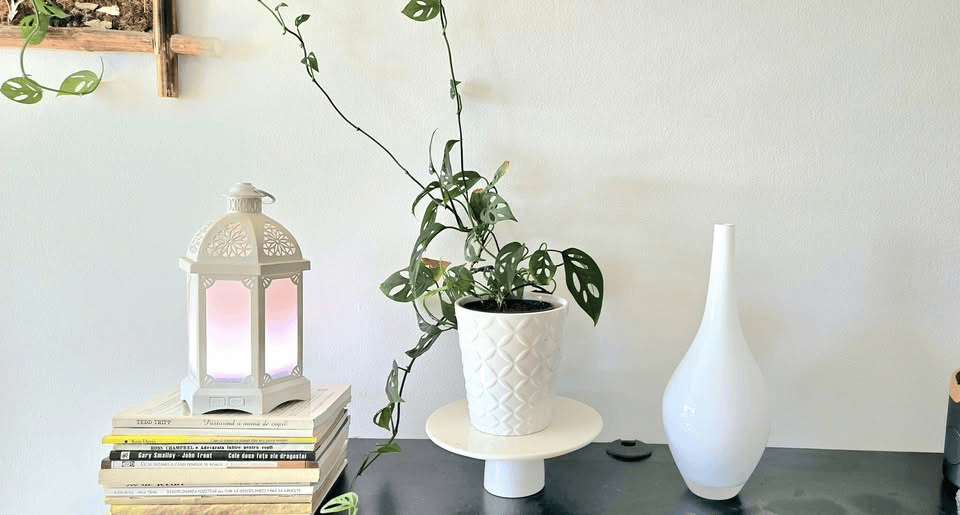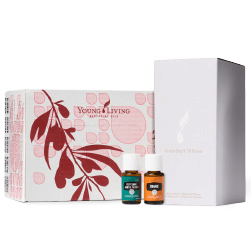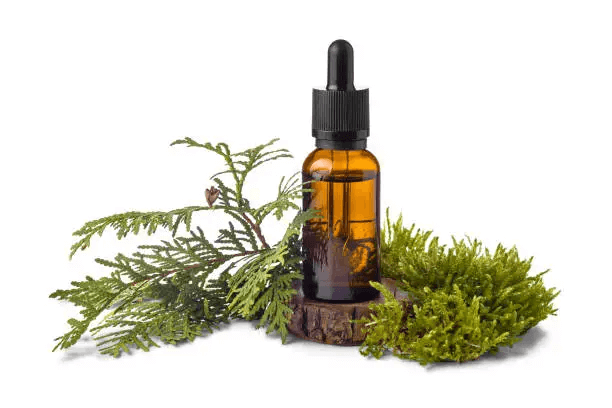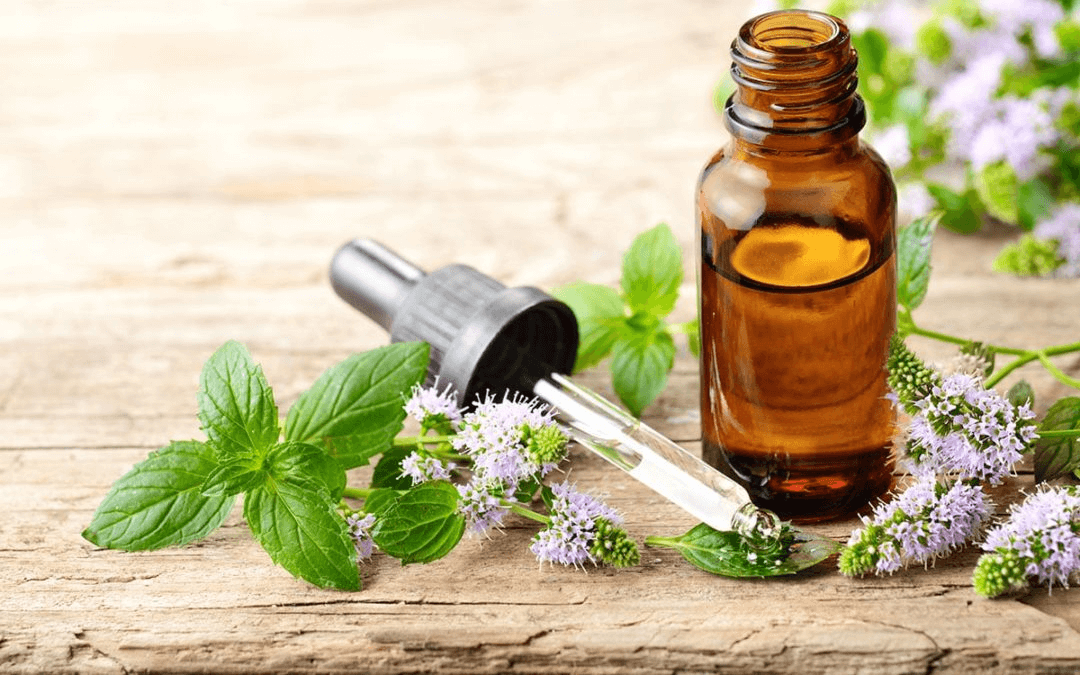
How to create a blend that works for YOUR mood, your family, and your goals
Let me tell you a little story. Years ago, I bought my first diffuser just because I loved the idea of my home smelling fresh and natural. I was that girl who had a candle burning in every room—especially in the fall. Pumpkin spice, vanilla latte, cozy cabin… you name it. But then I started learning what was actually in those candles, and let’s just say—I switched gears real fast. 😅
That’s when I started diffusing.
And what began as a little experiment in making my house smell good… turned into one of the most powerful wellness tools I’ve ever used.
Now, we diffuse every single day. In the kitchen. In the living room. In the bedrooms. And I truly believe it’s one of the simplest, most effective habits for supporting your health, energy, emotions, sleep, and even your hormones.
Let’s talk about WHY it works—and how you can customize your own blends to fit your life.
Diffusing Isn’t Just About the Smell
Of course, we all love it when our house smells amazing. But when you use pure essential oils, diffusing becomes so much more than just aroma.
You’re not just making your house smell like peppermint or cinnamon.
You’re supporting your nervous system.
You’re elevating your mood.
You’re cleansing the air.
You’re signaling your body to calm down or wake up.
You’re reducing your toxic load.
When you inhale essential oils through a diffuser, the scent molecules go straight through your nose to your limbic brain—that's the part of your brain that controls emotions, memory, and even hormones. That’s why some oils can instantly make you feel calm, focused, energized, or sleepy.
How We Start Our Day with the Diffuser
Every morning, before coffee, before noise, before screens… I turn on the diffuser. That’s my way of setting the tone.
Morning Blends We Love:
- Peppermint + Lemon + Orange → For focus, energy, and a bright mood.
- Grapefruit + Bergamot + Frankincense → Uplifting and grounding at the same time.
- RC or Raven + Lemon → To open up airways and support breathing (especially in cold months).
This small habit creates a ritual. It tells my body, “Okay, time to wake up and show up.”
Sometimes I’ll add a drop of Thieves in the kitchen diffuser, just to freshen the air and support immunity—especially if someone in the house is a little sniffly.
Midday Mood Rescue
Around 2–3pm is when the energy slump hits, especially if I’ve been staring at a screen or running around with a long to-do list. Instead of reaching for another coffee or sugar fix, I go to the diffuser.
Midday Pick-Me-Ups:
- Stress Away + Lime → A mini vacation in a diffuser.
- Peppermint + Rosemary → Brain boost without caffeine.
- Valor + Orange → Confidence and mood support for busy days.
- EndoFlex → My go-to for adrenal support and hormone balance.
If I’m working from home or recording something, I’ll diffuse something light and grounding that doesn’t distract me but keeps my head clear.
Diffusing in the Evening: Our Non-Negotiable
The evening diffuser is one of the most important parts of our wellness routine. Just like dimming the lights helps your body wind down, diffusing the right oils can signal your nervous system that it's time to relax, restore, and get ready for sleep.
This is especially important for women 40+—because as hormones shift, sleep becomes more fragile. And what we do in the 2–3 hours before bed can make or break our rest.
Evening Favorites:
- Lavender + Cedarwood → The OG sleepy-time combo.
- Peace & Calming + Orange → Calms the chaos and helps everyone chill.
- Sacred Frankincense → Perfect for reflection, prayer, or journaling.
- Dream Catcher → Great for emotional clarity before sleep.
And if it’s been a day, I’ll grab my Tranquil Roll-On, rub it on my neck, and match it with a calming diffuser blend. Game-changer.
You Can Customize It to YOUR Needs
One of the best parts of diffusing is that there’s no one-size-fits-all. You can create your own blends based on how you’re feeling that day.
Some ideas to play with:
| Goal | Oils to Try |
|---|---|
| Focus & Energy | Peppermint, Lemon, Rosemary, Orange |
| Calm & Stress Relief | Lavender, Bergamot, Peace & Calming, Valor |
| Immune Support | Thieves, Lemon, Clove, Eucalyptus |
| Hormone Balance | Clary Sage, EndoFlex, Geranium, Ylang Ylang |
| Sleep & Relaxation | Cedarwood, Vetiver, Frankincense, Roman Chamomile |
Want cozy fall vibes?
→ Try Cinnamon Bark + Orange + Vanilla
Feeling sluggish and puffy?
→ Try Grapefruit + Lemongrass + Cypress
Need to boost your mood?
→ Try Joy + Tangerine + Bergamot
→ Try Cinnamon Bark + Orange + Vanilla
Feeling sluggish and puffy?
→ Try Grapefruit + Lemongrass + Cypress
Need to boost your mood?
→ Try Joy + Tangerine + Bergamot
It’s like creating a mini spa or retreat vibe, right in your own living room.
Choosing the Right Diffuser
Not all diffusers are created equal.
I personally use the Desert Mist and Dewdrop diffuser from Young Living because they’re ultrasonic (no heat), beautifully designed, and come with auto shut-off and light options.
They’re also included in most starter bundles.
If you’re new to diffusing, make sure you:
- Use cold-air ultrasonic diffusers (never heat your oils)
- Clean your diffuser once a week with vinegar + water
- Start with just 3–5 drops, especially in small rooms
- Experiment and write down blends you love!
Final Thoughts: Why I Never Stopped
I’ve been diffusing for over 10 years now. And honestly, I’ve never looked back.
There’s something really special about creating a space that supports you emotionally, physically, and mentally—without doing anything extra. You just add the drops, press a button, and let the diffuser do its magic.
I like that I can support my kids, my sleep, my focus, my hormones, my immune system… all with a few drops of oil.
It’s one of those habits that feels small, but adds up big over time.
So if you’re new to oils, start here.
If you’re already an oiler, maybe this is your reminder to turn that diffuser on. ✨
Discover the top three essential oils to enhance your well-being this fall. From supporting your immune system to creating fresh, welcoming spaces, these blends are staples in my seasonal wellness routine.
Welcoming the Fall Season
As the leaves change and the crisp air rolls in, fall can feel both cozy and busy. Schedules get fuller, daylight shortens, and our bodies often ask for a little extra care. That’s why I lean on essential oils — simple, natural tools that help me feel supported and keep my home fresh as the season shifts.
Here are the three blends I never go without when autumn arrives.
1. Thieves – Immune Support Daily
The first on my list is Thieves. This famous blend combines clove, cinnamon bark, lemon, eucalyptus radiata, and rosemary. It’s my go-to for daily immune support — especially helpful as we transition into cooler weather.
How I use it:
- Diffuse during the day for a warm, spicy aroma
- Place one drop on the bottoms of my feet morning and night for a wellness boost
It’s a small daily ritual that helps me feel stronger and ready for the season.
2. R.C. – Clear Breathing
Next up is R.C., short for Respiratory Care. It blends eucalyptus, myrtle, pine, lavender, peppermint, and more. This one is amazing for those moments when the air feels heavy or when you just want to breathe more deeply.
How I use it:
- Diffuse at night to support restful breathing
- Apply a few drops (diluted) on my chest for a refreshing lift
It’s like a breath of fresh air in a bottle.
3. Purification – Fresh Air Anywhere
The third blend is Purification — my secret for keeping every space fresh. With lemongrass, rosemary, tea tree, lavandin, and citronella, it neutralizes odors and leaves behind a light, clean aroma.
How I use it:
- Diffuse after cooking or when the house feels stale
- Place a drop on a cotton ball and tuck it into shoes, closets, gym bags, or even the garbage can
It’s truly “fresh air in a bottle.”
Why These Three?
Together, these blends cover my fall wellness basics:
- Strength & support with Thieves
- Clear breathing with R.C.
- Fresh, inviting spaces with Purification
They’re simple, practical, and powerful — everything I want as the season changes.
Final Thoughts
You don’t need a shelf full of products to feel good this fall. A few key oils can support your body, lift your mood, and make your home a sanctuary.
Which one would you try first — Thieves, R.C., or Purification? Leave a comment and share your experience — I’d love to hear how you bring essential oils into your seasonal routine.
Resources
- Essential Oils Desk Reference (7th Edition) – a trusted guide on the history, uses, and benefits of Young Living oils
- Research on Essential Oils: If you want to dive deeper, studies like “Pharmaceutical and therapeutic potentials of essential oils” (Phytotherapy Research, 2007) and “Essential oils used in aromatherapy: A review” (Asian Pacific Journal of Tropical Biomedicine, 2015) explore their natural properties.
Ready to start your own fall wellness routine with these oils? Click here to get started or book a free consult with me to create a personalized plan just for you.

If you’ve ever wished you could bottle up natural energy and stamina—without needing another cup of coffee—you’re going to love this.
NingXia Red is Young Living’s signature superfruit drink, and it’s packed with nutrients that support your energy, hormones, and whole-body wellness. The best part? You don’t need a blender, juicer, or complicated recipes—just 2–4 oz a day.
The Story Behind NingXia Red
This powerful drink comes from the Ningxia wolfberry (aka goji berry), grown in a small region of Northern China. The people there were known for their strength, vitality, and longevity—and scientists traced it back to the wild wolfberries they consumed daily.
Young Living founder Gary Young brought this treasure to the world in the 1990s, and now we get to enjoy it in a simple, delicious daily shot.
Why NingXia Red Works
1. Antioxidant Powerhouse
One ounce of NingXia Red = two pounds of wolfberries. Add in blueberries, cherries, aronia, and pomegranate, and you’ve got an antioxidant storm that protects your cells from damage, aging, and fatigue.
- ORAC score (antioxidant capacity): 27,300 (compare that to blueberries at just 3,000!)
This means more protection against free radicals—the “bad guys” that speed up aging, wrinkles, and low energy.
2. Alkaline Support
Most of what we eat turns acidic in the body, which feeds inflammation, bacteria, and fatigue. Wolfberries are unique—they switch from acid to alkaline once digested, helping restore balance. (The only other food known to do this? Lemons!)
3. Fuel for Your Cells
NingXia Red is loaded with natural sugars and enzymes that act like keys to your cells—opening the door so nutrients can actually get in. By age 40, most of us have lost a big portion of our digestive enzymes. NingXia helps fill in the gap so you actually absorb what you eat.
4. Vitamin & Mineral Rich
The NingXia wolfberry is unmatched in nutrition:
- All essential amino acids (building blocks for muscle & hormones)
- Highest protein content of any fruit (13%)
- More Vitamin C than oranges (148 mg vs. 53 mg)
- Balanced minerals: perfect ratios of calcium, magnesium, zinc, copper, and potassium
- Beta-carotene for eye & skin health (higher than carrots!)
5. Infused with Essential Oils
Lemon, orange, yuzu, and tangerine essential oils don’t just add flavor—they help nutrients absorb better and deliver them straight to your cells.
My Favorite Part
NingXia Red doesn’t give you a jittery spike like coffee or energy drinks. It fuels your mitochondria (your body’s little power plants), so you get steady, natural energy all day long—without the crash.
How I Use It
I take 2 oz in the morning for a clean start to my day and another 2 oz mid-afternoon instead of reaching for sugar or coffee. Sometimes I add it to sparkling water or a smoothie—it tastes amazing either way!
And yes, my kids and grandkids love it too—it’s safe and delicious for the whole family.
Final Thoughts
Energy isn’t something you borrow (like caffeine). It’s something your body makes when you give it the right tools. NingXia Red does exactly that—it feeds your body nutrients it can actually use to keep you energized, focused, and thriving.
Order your Ningxia Red today and experience the difference!
Click here to buy NingXia Red
Let's take a step towards a healthier, more energized you!

.
Lavender Essential Oil for Menopause Support: Benefits, Research & How to Use
Why Lavender Oil Is Becoming a Go-To Menopause Remedy
Menopause is a natural stage of life, yet it can bring challenges that affect both physical and emotional well-being. In fact, about 95% of women enter menopause and then spend roughly one-third of their lives in the post-menopausal stage.
Common symptoms include:
- Hot flashes
- Vaginal dryness
- Sleep issues
- Reduced sexual desire
- Mood swings, depression, and anxiety
- Cognitive changes
Many women look for natural menopause remedies to avoid side effects from conventional treatments. One plant-based option getting attention is lavender essential oil (Lavandula angustifolia), known for its calming, hormone-supportive properties.
While lifestyle adjustments, diet, and exercise play a big role in symptom relief, natural plant-based remedies like lavender essential oil are also gaining attention — both in research and in traditional use.
Lavender Oil & Menopause: What the Science Says
A triple-blind clinical trial explored the effects of 80 mg of oral lavender essential oil (about two drops) daily for 60 days in menopausal women.
Results:
- Both lavender and placebo groups improved in mood, anxiety, hot flashes, and depression.
- Only the lavender group showed improved sexual function — a crucial but often overlooked part of menopause health.
Lavender Oils in Aromatherapy & Traditional Use
According to the Essential Oils Desk Reference (Seventh Edition), lavender is one of the most versatile and gentle essential oils. Documented benefits include:
- Relaxation & Sleep Support – Calms the nervous system, promotes deeper rest.
- Mood Lifting – May help reduce anxious feelings and improve emotional balance.
- Hormone Support – Traditionally used to support female health and hormone balance.
- Skin Soothing – Comforts skin during hot flashes and irritation.
- Intimacy Support – Creates a calming environment, may help enhance connection.
How to Use Lavender Essential Oil for Menopause Relief
1️⃣ Aromatic (Diffusing)
- Add 3–4 drops to a diffuser, especially at night.
- Combine with cedarwood or vetiver for deeper relaxation.
2️⃣ Topical (Skin Application)
- Apply 1–2 drops to wrists, temples, or back of the neck.
- For hot flash relief: Mix 2 drops lavender + 2 drops peppermint in 1 teaspoon carrier oil; apply to neck or feet.
3️⃣ Internal (Only if labeled for dietary use)
- Add 1–2 drops to a veggie capsule or herbal tea with honey.
- Study dosage: 80 mg (~2 drops) daily for 60 days.
Lavender Oil Safety Tips
- Avoid contact with eyes and mucous membranes.
- Dilute for sensitive skin.
- If pregnant, nursing, or taking medication, consult a healthcare provider.
- Use only pure, therapeutic-grade oils — most store lavender is synthetic or adulterated.
My Favorite Menopause Support Blend
- 2 drops Lavender
- 1 drop Clary Sage
- 1 drop Geranium
- Dilute in 1 tsp carrier oil and apply to lower abdomen or inner ankles morning & night.
Final Thoughts
Menopause is a season of change — but it doesn’t have to mean losing your vitality, intimacy, or joy.
Research and tradition both suggest that lavender essential oil can be a gentle, natural support for physical comfort, emotional balance, and sexual health.
Reference:
Kargar Jahromi H, et al. (2020). The effect of lavender essential oil on menopausal symptoms: A triple-blind, randomized clinical trial. View on PubMe
Kargar Jahromi H, et al. (2020). The effect of lavender essential oil on menopausal symptoms: A triple-blind, randomized clinical trial. Link to study
Essential Oils Desk Reference, 7th Edition, Life Science Publishing, 2016.

Let’s be honest… when you’re first starting with essential oils, it can feel a little too much.
There are so many bottles. So many names. So many ways to use them.
You might be thinking:
“Where do I even start?”
“What if I do it wrong?”
“How do I know which oil is for what?”So let’s break it down 💧
🌿 First: What are essential oils, really?
They’re highly concentrated plant extracts.
Think of it as the most powerful part of a plant — captured in a tiny drop.
Think of it as the most powerful part of a plant — captured in a tiny drop.
They’ve been used for centuries to support mood, sleep, hormones, skin, digestion, energy, and more.
But unlike synthetic perfumes or fake “aromatherapy” products at the store… real essential oils (like Young Living) are pure and potent. That’s why we use just 1–2 drops at a time.
✨ 3 Easy Ways to Use Oils (Even If You’re New):
1. Smell them (Aromatically)
This is the fastest way to shift your mood or energy.
✅ Put a drop in your palm, rub hands together, and inhale deeply
✅ Or pop a few drops into a diffuser (I love Lavender + Orange in the evening)
✅ Put a drop in your palm, rub hands together, and inhale deeply
✅ Or pop a few drops into a diffuser (I love Lavender + Orange in the evening)
🟣 My favorite to start with: Valor – it’s grounding, calming, and smells like confidence in a bottle.
2. Apply them to your skin (Topically)
Most oils can be used on the body — just mix 1–2 drops with a little carrier oil like coconut or olive oil.
✅ Rub on the bottoms of your feet, back of your neck, or your belly
✅ You can also make your own roller bottle blends (it’s easier than it sounds!)
🟣 Example: PanAway on sore muscles or Peace & Calming on your wrists at night
3. Take them with you (Daily Routine)
Start using oils as part of your normal routine — this is where the magic happens.
✅ A drop of Peppermint on your shirt before your walk
✅ A roll of Stress Away before your meeting
✅ A whiff of En-R-Gee instead of that 3pm coffee
Oils are tools. Use them daily, and your body will start responding.
🤔 But what if I don’t know which oils to use?
That’s exactly what I help women with — choosing oils that match your season of life, your body, and your goals.
Start simple. You don’t need 100 oils. You need 3–5 good ones you actually use.
Remember, oils carry energy and frequency. When you use them with intention, they know where to go and how to support you. It’s like your body and the oils are having a conversation — you just need to listen and trust the process.
So, don’t stress about having every oil under the sun. Use what you have, focus on your intentions, and let the oils do their magic.
If you want help picking your perfect 3–5 or learning how to use them with intention, I’m here for you. Let’s make it simple and powerful together!
🛒 Ready to Get Your First Oils?
I recommend starting with Young Living because I trust their quality. No fillers. No junk. Just pure plants.
👉https://www.youngliving.com/vo/#/enhanced-enrollment?sponsorid=3127882&enrollerid=3127882&isocountrycode=CA&culture=en-CA&type=member
👉https://www.youngliving.com/vo/#/enhanced-enrollment?sponsorid=3127882&enrollerid=3127882&isocountrycode=CA&culture=en-CA&type=member
✨ Not sure where to start?
Here’s my Summer Oil Bundle — it’s the perfect way to begin.
You’ll get a simple selection of oils + tips on how to use them with intention for energy, calm, and balance.
🌿 Start small. Feel the shift.
📦 Grab your Summer Bundle here ➡️ https://www.youngliving.com/vo/#/quick-order/product-info-page/49762/false/shopping-cart
📦 Grab your Summer Bundle here ➡️ https://www.youngliving.com/vo/#/quick-order/product-info-page/49762/false/shopping-cart

And I’ll personally help you choose what to get — no pressure. Just honest guidance.

Waking up at 3 or 4 a.m. every night — especially if it's a consistent pattern — can be a sign that your body or mind is trying to tell you something. Here are the most common reasons this happens, especially for women over 40:
1. Stress or Cortisol Spike
- Your stress hormone cortisol is naturally supposed to rise in the early morning — but if it's too high too early, it can wake you up suddenly.
- This can happen due to chronic stress, overtraining, under-eating, or adrenal dysregulation.
Tip: Try calming oils like Lavender, Cedarwood, or Stress Away at bedtime. A diffuser or drops on your pillow can help lower cortisol.
2. Blood Sugar Drop
- If your blood sugar crashes overnight, your body releases adrenaline to bring it back up — which can jolt you awake.
- Common if you:
- Skip meals
- Eat low-protein/high-carb dinners
- Drink alcohol before bed
Tip: Add a small protein + fat snack before bed (e.g., a boiled egg + a few almonds or Greek yogurt).
3. Hormonal Fluctuations (Perimenopause or Menopause)
- Around 3–4 a.m., estrogen and progesterone are at their lowest, and that can mess with temperature regulation and sleep stability.
- Hot flashes, night sweats, or anxiety-like awakenings are common.
Tip: Use hormone-supportive oils (like Clary Sage, Progessence Plus, or EndoFlex) and track your symptoms.
4. Overactive Mind or Emotional Processing
- If your mind is racing with worry, planning, or emotional stress, your nervous system stays “on”, even while you sleep.
- Waking up at the same time every night could be tied to emotional tension not being fully released during the day.
Tip: Journal before bed or use an oil like Frankincense or Sacred Mountain to calm your thoughts.
5. Sleep Environment or Lifestyle Habits
- Blue light before bed, inconsistent sleep/wake time, caffeine after 2 p.m., or even a cold bedroom can disrupt your sleep cycle.
- Sometimes waking up becomes a habit — your body learns the pattern.
Tip: Wind down with a solid bedtime ritual — no screens, warm tea, light stretching, calming oils.( Lavender, Cedarwood, Frankincense)
BONUS: Traditional Chinese Medicine Insight
According to the Chinese Body Clock, 3–5 a.m. is when the lungs and grief are activated. Some believe waking at this time reflects emotional release or stuck energy, especially if you're processing sadness or a big life change.
Reference:
National Institutes of Health (NIH) – Circadian rhythm of cortisol
Journal of Clinical Sleep Medicine – Impact of glucose levels on sleep
The North American Menopause Society (NAMS) – Sleep and menopause
Sleep Foundation – How anxiety affects sleep
CDC Sleep and Sleep Hygiene Tips – Sleep hygiene strategies
Reference: Evidence-Based Complementary and Alternative Medicine – Lavender and sleep quality

If you’re looking for an essential oil that works just as hard as you do — Cedarwood is it! This warm, woodsy oil isn’t just great for making your home smell amazing — it’s packed with incredible benefits for your skin, hair, emotions, and even your immune system.
1. Helps with Eczema and Skin Irritations
Cedarwood essential oil has soothing and anti-inflammatory properties that can calm down eczema flare-ups (1).
- Try adding a drop to your daily lotion, mixing it with a carrier oil, or tossing a few drops into a warm bath to ease the itch.
2. Promotes Hair Growth
Cedarwood stimulates hair follicles and improves circulation to the scalp. A study published in Archives of Dermatology showed that a blend of Cedarwood, Thyme, Rosemary, and Lavender essential oils improved hair growth by 44% in people with alopecia areata over seven months (2).
3. Soothes Dry, Flaky Scalp
Its antifungal and moisturizing properties (3) make Cedarwood a great natural remedy for dandruff. Mix Cedarwood with coconut oil, massage into the scalp, and leave on for about 30 minutes before washing.
4. Natural Antiseptic Power
Research shows Cedarwood oil has antimicrobial and wound-healing properties (4).
- Mix a few drops with coconut oil and dab onto cuts and scrapes.
5. Supports Arthritis and Joint Pain Relief
Thanks to its anti-inflammatory compounds (5), Cedarwood can ease joint pain.
- Massage diluted Cedarwood oil onto sore joints and muscles or add it to a warm bath.
6. Acts as a Natural Deodorizer
With its warm, grounding aroma and antibacterial properties (6), Cedarwood freshens up your home and eliminates odors.
7. Encourages Better Sleep
Studies suggest Cedarwood has sedative effects (7), promoting relaxation and improving sleep quality.
- Diffuse Cedarwood before bed for a deeper, more restful night.
8. Works as a Natural Diuretic
Cedarwood is believed to stimulate the urinary system, helping with fluid retention (8).
9. Boosts Focus and Helps with ADHD Symptoms
In one small study, inhalation of Cedarwood essential oil improved focus and learning in children with ADHD by 65% (9).
10. Eases Coughs and Respiratory Issues
When inhaled, Cedarwood’s expectorant properties can help clear up mucus and ease coughing (10).
11. Repels Bugs Naturally
Cedarwood oil has been shown to repel mosquitoes and other insects (11).
- Add to DIY sprays or use on cotton balls in closets.
12. Provides Stress Relief
Its calming effects can help ease anxiety and tension (12).
- Diffuse Cedarwood when you need to unwind.
13. Fights Fungal Infections
Cedarwood essential oil has antifungal properties effective against certain fungal infections (13).
Apply it diluted to problem areas to help clear up skin issues.
Cedarwood essential oil has antifungal properties effective against certain fungal infections (13).
14. Helps Clear Up Acne
Cedarwood’s antibacterial and sebum-balancing properties (14) make it great for reducing acne when added to skin care routines.
✨ How to Use Cedarwood Essential Oil
- Diffuse it: Add 4–6 drops to your diffuser for a warm, grounding aroma.
- Topical use: Dilute it with a carrier oil (like coconut or jojoba oil).
- Bath soak: Mix a few drops with Epsom salts and add to your bath.
- DIY blends: Add it to body lotions, deodorants, and hair masks!
- Direct inhalation: Inhale straight from the bottle or rub a drop between your palms.
- Spot treatment: Dab diluted Cedarwood oil onto blemishes, bug bites, or dry patches.
✅ Always test a small area of skin first to avoid any reactions.
Final Thoughts
Clearly, Cedarwood is a must-have oil for any natural health toolkit! Whether you’re looking to boost your beauty routine, ease stress, improve sleep, or freshen your space, this earthy powerhouse has got you covered.
Ready to start using Cedarwood in your daily life?
References:
- Han, X., Parker, T. L. (2017). Molecules.
- Hay, I. C., Jamieson, M., Ormerod, A. D. (1998). Archives of Dermatology.
- Benencia, F., Courrèges, M. C. (1999). Mycoses.
- Onawunmi, G. O. (1989). Fitoterapia.
- Juergens, U. R., Stöber, M., Vetter, H. (1998). Phytomedicine.
- Boukhatem, M. N., et al. (2014). Asian Pacific Journal of Tropical Biomedicine.
- Miyazaki, Y., Motohashi, Y., Kobayashi, S. (2011). Physiology & Behavior.
- Leung, A. Y., Foster, S. (1996). Encyclopedia of Common Natural Ingredients.
- Arnold, L. E., et al. (2001). Prostaglandins, Leukotrienes and Essential Fatty Acids.
- Karaman, S., et al. (2014). Journal of Inflammation Research.
- Zhu, J., et al. (2001). Journal of Medical Entomology.
- Setzer, W. N. (2009). Natural Product Communications.
- Ali-Shtayeh, M. S., Abu Ghdeib, S. I. (1999). Mycoses.
- Prashar, A., Locke, I. C., Evans, C. S. (2006). Toxicology Letters.

Essential oils aren’t just for fancy spas or DIY projects — they’re for real life! These little bottles are packed with powerful plant goodness that can freshen up your home, lift your mood, ease aches, and even help you sleep better.
If you’ve ever wondered how to actually use essential oils every day, I’m breaking it down for you — nice and simple. No complicated recipes or routines. Just real-life ways you can bring a little more natural wellness into your home starting today!
1. Freshen Up Your Fridge
Let’s be honest — sometimes the fridge gets a little funky.
Here’s an easy fix: grab a small bowl, pour in some baking soda, and add about 15 drops of lemon essential oil. Stick it on a shelf, and you’ll have a fresh-smelling fridge for weeks. No more weird odors greeting you every time you open the door!
Here’s an easy fix: grab a small bowl, pour in some baking soda, and add about 15 drops of lemon essential oil. Stick it on a shelf, and you’ll have a fresh-smelling fridge for weeks. No more weird odors greeting you every time you open the door!
2. De-Stink Your Shoes
If you’ve got sneakers that could use some TLC, try this:
Add a few drops of peppermint, tea tree, or eucalyptus oil onto a cotton ball, and tuck it into each shoe overnight. You can even make a quick spray — mix water and a few drops of oil in a little bottle and spritz your shoes after wearing them. Easy, natural, and so much fresher!
Add a few drops of peppermint, tea tree, or eucalyptus oil onto a cotton ball, and tuck it into each shoe overnight. You can even make a quick spray — mix water and a few drops of oil in a little bottle and spritz your shoes after wearing them. Easy, natural, and so much fresher!
3. Boost Your Energy
That mid-afternoon crash is real. Instead of reaching for more caffeine, pop a few drops of peppermint or citrus oils into your diffuser.
These oils are natural energizers — they’ll help you feel more awake, clear-headed, and ready to finish strong.
These oils are natural energizers — they’ll help you feel more awake, clear-headed, and ready to finish strong.
4. Calm a Queasy Stomach
Feeling a little off? Essential oils to the rescue!
Add a few drops of peppermint or chamomile to your diffuser for a soothing aroma. Or dilute some peppermint oil with a carrier oil and rub it on your wrists and temples. It’s especially handy if you’re dealing with motion sickness or that “blah” feeling.
Add a few drops of peppermint or chamomile to your diffuser for a soothing aroma. Or dilute some peppermint oil with a carrier oil and rub it on your wrists and temples. It’s especially handy if you’re dealing with motion sickness or that “blah” feeling.
5. Soothe Sore Muscles
Long day? Tough workout? No worries.
Mix a few drops of eucalyptus and peppermint oils with a carrier oil (like coconut or jojoba) and massage it into sore muscles. Not only does it help ease the aches, but the cooling, fresh scent is super relaxing too.
Mix a few drops of eucalyptus and peppermint oils with a carrier oil (like coconut or jojoba) and massage it into sore muscles. Not only does it help ease the aches, but the cooling, fresh scent is super relaxing too.
6. Boost Your Immune System
Stay ahead of sniffle season!
Eucalyptus is amazing for supporting your immune system, and when you blend it with lemon oil, it smells fresh and clean. Diffuse them together daily to keep your home (and your body) feeling strong.
Eucalyptus is amazing for supporting your immune system, and when you blend it with lemon oil, it smells fresh and clean. Diffuse them together daily to keep your home (and your body) feeling strong.
7. Keep Bugs Away (Naturally!)
Nobody wants to be a bug buffet.
Bugs can’t stand citrus oils like lemon and lime. Mix a few drops in a spray bottle with water and mist around doorways, windows, or even your picnic table outside. It’s an easy, chemical-free way to enjoy summer without all the swatting.
Bugs can’t stand citrus oils like lemon and lime. Mix a few drops in a spray bottle with water and mist around doorways, windows, or even your picnic table outside. It’s an easy, chemical-free way to enjoy summer without all the swatting.
Final Thoughts
Essential oils are like little bottles of nature’s magic — simple, powerful, and full of ways to make your everyday life a little better.
You don’t need to do anything fancy. Start small. Try one or two of these ideas and see how it feels. You might just fall in love with the way they make you, your home, and your family feel.
You don’t need to do anything fancy. Start small. Try one or two of these ideas and see how it feels. You might just fall in love with the way they make you, your home, and your family feel.
Got a favorite oil you can't live without? I’d love to hear about it! 💬✨
References:
- National Association for Holistic Aromatherapy. "Essential Oil Safety Guidelines." https://naha.org
- Tisserand Institute. "Essential Oil Safety and Usage." https://tisserandinstitute.org
- Young Living Essential Oils. "How to Use Essential Oils for Everyday Wellness." https://www.youngliving.com
- Healthline. "Benefits of Essential Oils and How to Use Them." https://www.healthline.com/health/essential-oils
- AromaWeb. "Beginner’s Guide to Essential Oils." https://www.aromaweb.com

🍊 Orange Essential Oil: Sunshine in a Bottle
If you’ve ever peeled an orange and felt instantly happy just from the smell, you’re not alone. That burst of juicy, citrusy scent comes from the oils in the peel—and it’s pure magic.
In my world of holistic health, orange essential oil is a total must-have. It’s affordable, easy to use, and one of the most versatile oils out there. Whether I’m using it to lift my mood, clean my kitchen, or soothe a headache—this oil delivers every time.
Let me share exactly why I love it and how it might become your new favorite too.
🌞 1. Natural Mood Booster (aka A Little Bottle of Joy)
Orange oil is like sunshine in a bottle. Studies show it can help calm anxiety, lift depression, and lower stress levels. Just five minutes of diffusing it can shift your whole energy. Seriously, try it on a Monday morning or after a stressful day—you’ll feel the difference.
🧪 Study note: Komori et al. (1995) found citrus scents like orange helped boost mood and immune function.
💆♀️ 2. Stress & Anxiety Relief
One study used orange oil with kids waiting for dental treatments (yep, super stressful)—and it lowered their cortisol (stress hormone) and pulse rate. If it can work in that scenario, it can definitely help with adult overwhelm too.
🧪 Study: Jafarzadeh et al. (2013) on anxiety reduction in children.
🦠 3. Immune Support + Antioxidant Power
This oil is rich in limonene (up to 96%!), a powerful antioxidant studied for its ability to support immunity and reduce inflammation. It’s even been explored for its potential to fight tumor growth. Wild, right?
💡 Bonus: Limonene also supports detox pathways and liver health.
🧼 4. Natural Antibacterial & Non-Toxic Cleaning
Orange oil can help fight off nasty bacteria like E. coli and Salmonella. I mix it into DIY cleaners with tea tree or bergamot to make my kitchen smell fresh and clean—without using harsh chemicals.
🌿 Tip: Add 10 drops to a glass spray bottle with vinegar and water for an easy natural cleaner.
💓 5. Heart & Circulation Support
Studies show inhaling orange oil may help lower blood pressure and improve circulation. It’s a lovely addition to your self-care ritual—think gentle massage with diluted orange oil before bed.
🔥 6. Pain Relief & Anti-Inflammatory
If you deal with joint pain or inflammation, orange oil may help soothe those aches. It’s been used in hospital settings to reduce pain and inflammation. I love using it on sore muscles (always diluted!).
✨ 7. Glowing Skin & Acne Support
Thanks to its antimicrobial properties and vitamin C content, orange oil can help brighten skin, fight breakouts, and even stimulate collagen. Just be sure to patch test and always dilute with a carrier oil.
😴 8. Sleep & Relaxation
Yup—this oil can both energize and calm. Diffuse orange oil before bed to help your mind slow down. Or mix a drop into your evening body lotion to signal that it’s time to rest.
😁 9. Fresh Breath & Healthy Gums
Orange oil can also support oral health! I add a drop to my coconut oil for oil pulling. It freshens breath and helps fight mouth bacteria naturally.
💧 How to Use Orange Essential Oil
- Diffuse it for 30–60 minutes for a mood or energy lift.
- Topical: Dilute 1 drop with a carrier oil (like coconut or jojoba) and apply to your chest, wrists, or reflex points.
- Internal (Vitality line only!): Add a drop to a veggie capsule or warm water if it’s labeled safe (like Young Living’s Orange Vitality™).
- DIY cleaner: Add to vinegar and water in a spray bottle for surfaces.
⚠️ Important: Like other citrus oils, orange oil can make your skin more sun-sensitive. Avoid direct sunlight on the area for at least 12 hours.
🍊 Fun Facts for Oil Nerds
- Botanical name: Citrus sinensis
- Family: Rutaceae
- Origin: USA, South Africa, Italy, China
- Extraction: Cold-pressed from the rind
- Key Compounds: Limonene (85–96%), Myrcene (0.5–3%)
- ORAC Score: 1,890 μTE/100g (that’s antioxidant power!)
💛 Final Thoughts
Orange essential oil is one of those oils I recommend to every woman over 45. It’s gentle, affordable, and does so much—emotionally, physically, and even around the house.
Whether you want to feel more uplifted, sleep better, or just clean with something non-toxic, orange oil has got you covered.
Let me know how you like to use it—or tag me if you try any of these tips! I’d love to hear your orange oil story 💬💕
📚 References
- Komori, T. et al. (1995). Effects of Citrus Fragrance on Immune Function and Depression. Neuroimmunomodulation.
- Jafarzadeh, M., et al. (2013). The Effect of Orange Essential Oil on Anxiety in Children During Dental Procedures.
- Rai, M. K. et al. (2011). Antimicrobial properties of Citrus sinensis peel oil. Journal of Food Safety.
- Saeed, M. et al. (2015). D-limonene: A bioactive compound with multipotent therapeutic applications. Journal of Oleo Science.
- Young, D. Gary. Essential Oils Desk Reference, Life Science Publishing, 7th Edition.




